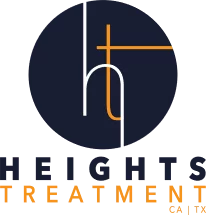Table of Contents
A dual diagnosis occurs when someone experiences a mental health condition and a substance abuse problem. If you suspect you have a mental health condition and addiction, you might be interested in exploring the various treatment programs available.
In this article, we’re taking a close look at the link between depression and addiction.
Depression And Addiction
Addiction and depression may seem like two related yet separate conditions that often cross paths as a case of coincidence rather than as a part of high statistical likelihood. Yet, depression and substance abuse are common comorbidities, bedside fellows in many cases of depression and addiction. It can be a little challenging to determine which came first – and it’s usually a matter of circumstance, different from individual to individual.
Regardless of whether the depression kicked in after or before the addiction, there are a few reasons why these two psychological disorders are, sadly, commonly linked. But before we go into the specifics, it’s important to know what depression is – because there are differences between depressive emotions, a cyclical depression, and a full-blown depressive disorder, and the effects and consequences each of these diagnoses have on substance abuse, as well as the significance of whether the addiction occurred before or after the onset of depression.
Here’s what you need to know about the link between depression and addiction.
What Is Depression?
Depression, as a disorder, is more aptly known as major or severe depression and consists of a set of depressive symptoms lasting a significant amount of time: usually over two weeks or longer, depending on the exact timing of the symptoms and any possible surrounding triggers.
You see, it’s perfectly normal and even healthy to react to a tragic and traumatic event in life with depressive symptoms. A lack of appetite, disinterest in old hobbies, problems concentrating on work, feelings of hopelessness and loneliness, nihilistic thoughts, and even thoughts of self-loathing or guilt – these are common instances of depressive thinking, and they’re linked to loss, to grief, and to severe emotional trauma.
But usually, we snap out of this line of thinking. At some point, our minds rebound, they come to terms with the situation, and we regain our usual demeanor or a more somber yet still normal behavior. When the symptoms last abnormally long, beyond any usual period of grief, a person could be considered stuck in a depressive state and put in major depression. Getting out of major depression requires a lot of inner strength and professional treatment. Like addiction recovery, overcoming depression starts with wanting to overcome it. When you get fed up with feeling the way you do, you seek ways to improve your demeanor, outlook, and take on life. Therapy, picking up exercising and old hobbies, updating your diet, going out with friends, trying even when you don’t want to – these are all things that, with time, improve the symptoms of depression and eventually reduce a diagnosis from severe to mild, or even nonexistent.
A mild depression that comes and goes is known as a cyclothymic disorder and is often characterized by an onset of depressive feelings repeatedly without any known triggers or reasons. It may be caused by genetics, brain chemistry, environmental factors, or suppressed trauma. And treatment, again, relies on actively seeking ways to improve the mood through exercise, social activities, therapy, and more.
So, Where Does Addiction Come Into The Picture?
When in depression, addiction is often an easy way to snap out of the oppressive emotions surrounding the disorder. The bleak emptiness that many endure can be replaced by the chemical rush of positive emotions and pleasure triggered by many substances. Even depressive drugs like alcohol have a “positive” effect on those struggling with depression. But we all know why addiction is a problem – that rush only lasts so long, and when it’s gone, it replaces itself with hunger. That hunger becomes a problem, an obsession that takes up your life, and when you’re already struggling with happiness through depression, then addiction can feel like the final nail in the coffin.
And to many, sadly, it is. Suicide is an all-too-common end to those struggling with depression and substance abuse because the way out can seem almost impossible to see, obscured by darkness. Yet, the good news is that it isn’t. Both addiction and depression are curable – and there are many treatments designed to cure one or the other, or both in any order.
Addiction to those struggling with depression is often a coping mechanism, a way to fight depression on a short-term basis, with long-term consequences. The only sure way to beat something like that is by treating the cause – depression – alongside the symptoms of addiction. While someone struggling with depression won’t magically stop being addicted after working to treat their depression, the similarities in depressive treatments and recovery can often mean that those who manage to negate their diagnosis also have a great chance of achieving long-term sobriety if the treatment is done thoughtfully.
However, on the other way around, it’s more important to focus on the struggle of recovery rather than the depression first. Helping someone recover from their addiction may come out of treatment without any depressive symptoms left, especially after the initial post-rehab phase of emotional instability.
In the end, what links these two conditions is how they feed off each other. Depression seeks addiction to cope. Addiction often leads to depression because in between highs, there’s a distinct absence of joy, and the overwhelming sense of pleasure and satisfaction achieved by addiction robs you of the joys of life, ironically leading you to a form of anhedonia or an inability to feel pleasure. It’s especially dangerous in addictions where overdose is common, like alcoholism, where the cycle of addiction and depression can result in poisoning and an untimely end.
Beating one and the other requires moving past these negative emotions and striving for a life that feeds off living and joy, possibilities and motivation, and the inspiration to keep on discovering new things that bring pleasure and a sense of achievement in a healthy, non-obsessive way. Some people struggle with these issues for years–but today, we’re well-equipped to tackle depression and addiction.
The Heights Treatment Editorial Guidelines
There is a vast amount of misinformation online especially as it relates to health & wellness. We have made it our mission at The Heights Treatment to provide accurate, medically sound content that has been medically reviewed by a doctorate level clinician so that you can trust the information contained within our website.





